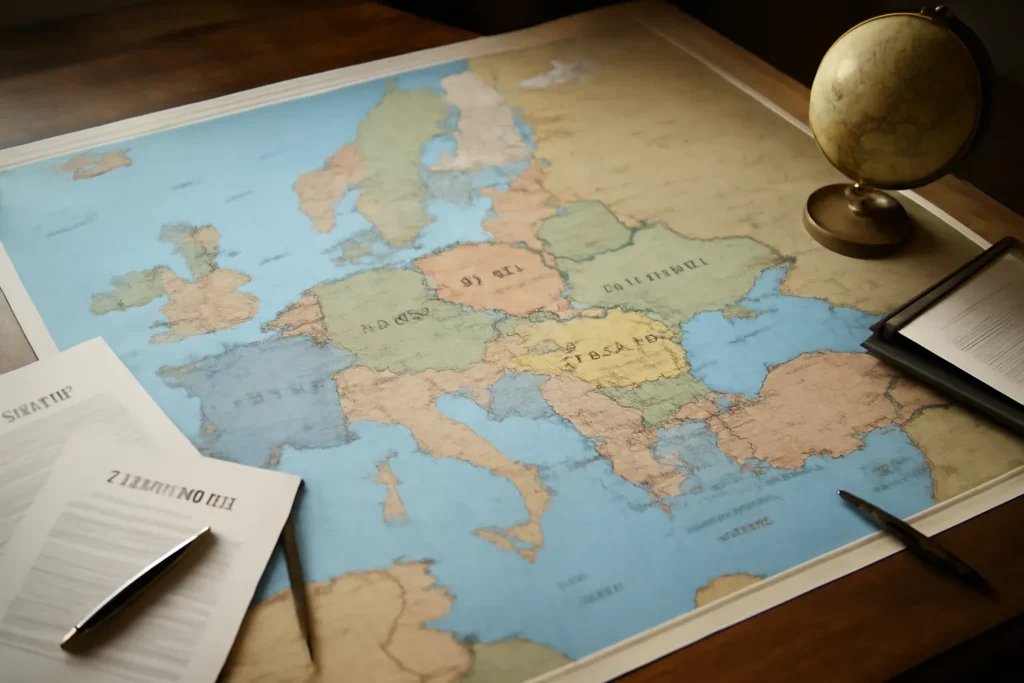Echoes of History: Europe’s Sobering Realization
Berlin’s winter chill could not compare to the icy clarity facing German Chancellor Friedrich Merz and his European colleagues. In his first major diplomatic outing as Chancellor—a telling visit to Paris to meet President Emmanuel Macron—Merz put forth a message that’s both a reality check and a call to action: Europe, for all its collective might, cannot singlehandedly guarantee Ukraine’s security or broker lasting peace with Russia.
His statement reverberates well beyond the corridors of power. Nearly two and a half years into Russia’s unprovoked invasion of Ukraine, Americans and Europeans alike have watched headlines shift from early solidarity to uneasy fatigue. Yet, Merz’s blunt assessment brings a necessary jolt: “The war in Ukraine will not end without the United States,” he insisted, echoing a sentiment long whispered in NATO halls and openly worried over in Kyiv.
Why such insistence on Washington? Decades of transatlantic partnership have shown that when the U.S. recedes from European security commitments—the vacuum is not so easily filled. The post-World War II era saw the United States invest heavily in the creation of NATO, extending its “nuclear umbrella” over a continent still reeling from conflict. Today, despite talk of European “strategic autonomy,” the stark truth remains: the American deterrent, military capabilities, and diplomatic heft remain the backbone of collective defense.
Professor Rachel Tausendfreund of the German Marshall Fund notes, “Everyone appreciates Europe stepping up, but it’s simply not a one-for-one replacement. The U.S. provides operational muscle, political leverage, and crucially—the nuclear guarantee.” A sobering reality for those who might wish for quick fixes or isolationist drift.
The “3+3” Security Equation: Expanding the Umbrella
Merz’s remarks in Paris were not mere repetition of established dogma. He floated a bold, if challenging, expansion to Europe’s security architecture: including France and the United Kingdom in a broadened nuclear deterrent conversation. In practice, that means a potential “3+3” format—Germany, France, and Poland in lockstep with the U.S., France, and the UK. The idea is progressive, if not entirely unprecedented; calls for stronger nuclear collaboration have waxed and waned since the Cold War. What’s new is the urgency—and, candidly, the fear that America’s commitment could waver under a possible second Trump administration or resurgent isolationism in Washington.
Critics on the American right routinely dismiss European calls for help as freeloading. Their argument, revived whenever big-ticket U.S. aid for Ukraine hits Congress, suggests Europeans should “take care of their own backyard.” But history and contemporary military calculus undermine this notion. Germany’s military budget, even after recent increases, still pales in comparison to U.S. spending. And with the U.K. and France maintaining smaller nuclear arsenals than the U.S., the balancing act becomes painfully clear: without the American shield, Europe’s ability to deter outright aggression is perilously thin.
Macron’s skepticism about Russia’s willingness for compromise, voiced alongside Merz, hints at another danger. As negotiations for a possible ceasefire emerge, Ukraine’s bargaining position will depend directly on the strength—and reliability—of its Western support. Putin, like all strongmen, sniffs out weakness or division. Should the U.S. commitment waver, the Kremlin may see an opportunity to press its advantage, leaving Ukraine (and Europe) at greater risk.
“The American deterrent, military capabilities, and diplomatic heft remain the backbone of collective defense.”
What about the broader geopolitical implications? Harvard’s International Security Program director Steven Hoffman recently remarked that “if America steps back, both European security and the global rules-based order will be profoundly threatened. The cost would be borne not just by Ukrainians, but by democracies everywhere.” That is a cost no progressive ought to accept lightly.
Choices and Consequences: Progressive Values on the Line
Beyond policy wonkery and conference-room abstractions lies the human cost of the war. Ukrainian President Volodymyr Zelensky’s personal congratulations to Merz—and hope for his leadership—underscore Kiev’s acute dependence on Western unity. Calls for ceasefire and security guarantees are not just diplomatic signals; they are lifelines for families and freedom fighters alike.
Is it fair, some ask, for Europeans to bear the greatest brunt while the U.S. spends billions overseas? It’s a reasonable question, especially with economic pressures mounting at home. Still, history tells us that turning inward does not ensure peace. When the U.S. disengaged after World War I, Europe paid the price in blood and devastation. Only when America returned to the fold after World War II did a stable, democratic Europe truly emerge.
Today, the stakes are no less dramatic. A premature withdrawal, or even a perceived slackening of U.S. resolve, would play directly into the hands of authoritarians from Moscow to Beijing—and send a chilling message about the reliability of Western promises. That’s why progressive leadership now requires courage: championing security, democracy, and a transatlantic alliance that values collective good over short-term self-interest.
As Chancellor Merz prepares for a symbolic visit to Warsaw and, soon, Kyiv, he carries with him not just the hopes of embattled Ukrainians or his European peers. His message is aimed squarely at Washington, reminding all of us that peace and justice—ideals at the core of any liberal society—depend not on isolation, but on robust participation and solidarity.
The question is not whether American involvement is necessary. As Merz eloquently—and urgently—put it: the fate of Ukraine, and indeed the future of liberal democracy on the continent, hangs in the balance. Our choices today will script the headlines of tomorrow, for better or worse.

